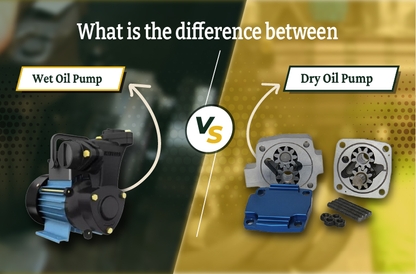The year 2024 ensures that B2B tools distribution companies are now traversing through a terrain characterized by fast technological advances, changing customer expectations and intense competition.

Distributors play an important role in enabling tools and equipment to attain the right firms at the right time. The significance of B2B tools cannot be emphasized enough, as they form the basis for different sectors, such as manufacturing, construction, and maintenance.
However, 2024 brings unique challenges in B2B distribution companies that require them to devise innovative solutions and strategic approaches to survive.
Importance of B2B Tools
The existence of several industries heavily depends on B2B tools. They make it possible to produce items faster, save lives, and improve the quality of products. Moving these things from one place to another requires a lot of planning and good relationships with suppliers with deep knowledge about what their customers want.
As competition in this market becomes more challenging due to technological changes, companies selling these commodities need more skills to remain relevant while still making profits.
As per the reports, the global machine tools market is expected to reach to $146.9 billion by 2032. It is also stated that the global machine tool market is driven by factors including:
- Increasing demand for lightweight vehicles
- Need for versatile machines to handle complex parts and materials across various industries (e.g., aerospace, automotive, electronics)
Besides, the integration of smart technologies leads to:
- Improved precision and efficiency
- Reduced downtime
- Alignment with lean and agile manufacturing practices
However, distribution companies are facing challenges when it comes to B2B business complexities. You need to find out the best manufacturer and supplier for buying goods that simplify your projects.
Now, here are some of the challenges that you need to overcome to achieve your business goal.
Challenges Facing B2B Tools Distribution Companies
In 2024, B2B tools distribution companies face numerous challenges that require strategic navigation and innovative solutions to stay competitive. These challenges range from intense market competition and the necessity for digital transformation to complex logistics and evolving customer expectations.
Here are the key challenges facing B2B distributors:
Competing Against Established Players
The distribution market for B2B saws is highly competitive because incumbent leaders control a large chunk of the industry and enjoy customer loyalty. New entrants or smaller firms find it challenging to compete against these giants.
The key players already have vast amounts of capital resources behind them and strong brand names, amongst other things that come from being around for long, loyal group clients. For example, gaining new shares takes innovation strategies above average value propositions and understanding what markets expect.
Difficulty in Digital Transformation
Digital transformation was once seen as an option, but now it’s mandatory for survival in today’s business environment. Many digital transformation initiatives fail because they are costly, change-resistant, and lack expertise.
Most advanced systems, such as Customer Relationship Management Software (CRM), Inventory Management Systems and Customer Service Chatbots, can prove challenging yet basic moving forward.
Failing to Understand Complex B2B Requirements
B2B transactions can be more complicated than those involving direct-to-consumer (DTC) or business-to-business (B2C) models because they involve bulk orders, personalized pricing and complex delivery schedules. However, B2B distributors hold a prominent role in modern-day eCommerce.
When a B2B distributor fails to understand its customers' complex requirements, such as exclusive rights or long-term agreements, dissatisfaction and clientele loss are bound to occur. To ensure seamless operation, distributors of B2B tools must manage these complexities well.
Struggling with Shipping Constraints
Efficient and timely shipping is crucial in B2B distribution; however, companies grapple with logistical challenges such as controlling freight costs and complying with international regulations.
Consequently, shipping constraints may result in delays, increased expenses, and ultimately unsatisfied clients, which negatively impact the firm's reputation and financial position.
Inability to Maintain Suppliers
For these businesses to function effectively, it is important for them to have good relationships with tool suppliers. Since demand tends to fluctuate a lot, sometimes, due to payment issues, vendors may decide to stop working with certain distributors.
Such problems include inconsistency. Losing one’s main source products will entail some downtime, sales decline, and customer quarter disappointment.
Difficulty in Finding Customers
Finding and reaching potential buyers takes a lot of work for a B2B tool distribution company. Unlike other sectors where marketing campaigns can be generalized across various niches, B2B entities must narrow their scope to specific industries and decision-makers who contribute the most revenue streams.
When you hope to identify and keep purchasing agents from other players, the right marketing tactics, networking skills, and industry awareness become central survival tactics in this space.
Impact of the Challenges on your business
Challenges that affect companies distributing B2B tools can significantly impact their activities and profitability and can lead to a B2B supply chain crisis. Focusing on entrenched competitors without a strong value proposition may reduce market share and revenue. Failing to go digital effectively can lead to inefficiencies, high rates of operational expenses or low levels of customer satisfaction.
The inability to comprehend complicated B2B requirements might push buyers towards alternatives with more customized answers. Consequently, shipping problems may spoil reputations and increase costs and disruptions in the supply chain due to weak supplier relationships. Finally, the inability to find and keep clients means your business remains static or shrinks indefinitely.
Here are some key segmentations and details that help you understand the impact of the unique challenges in B2B distributions.
| Segmentations | Details |
|---|---|
| By Category of Supply |
|
| By Deployment |
|
| By Channel | Direct Sales, Marketplace Sales |
| By End-User |
|
| Key Players | Amazon, Alibaba, eBay, DIYTrade, IndiaMart, iOffer, DHgate, eWorldTrade |
| Geographies Covered | US, Canada, Europe, Asia Pacific, MENA, LATAM |
Now that you have a detailed overview of the market segment and how technologies and B2B marketplaces redefine the distribution landscape, let’s examine the solutions to overcome these challenges.
Solution to Overcome These Challenges
Implementing advanced digital technologies and partnering with specialized logistics providers are essential strategies to overcome the challenges companies face in B2B integration. Additionally, fostering strong supplier and customer relationships, coupled with offering personalized solutions and seamless shopping experiences, can significantly enhance competitiveness and customer satisfaction.
Looking into Digital Transformation
You need to consider the role of digital transformation in driving competitiveness. This will mean investing in technology such as chatbots whose presence enhances instant responses to client queries, among other things. Customer relationship management (CRM) systems help manage client relationships while tracking interactions, critical elements of sales promotion
Optimization software assists firms in controlling stock, thus reducing the holding cost level by avoiding overstocking or stock-out instances. Deploying these technological instruments would streamline operations, enhance customer loyalty and provide marketable insights into tactical thinking.
Partnering with B2B Logistic Providers
You should partner with specialized 3PL providers for businesses like yours to overcome shipping constraints. These companies possess skills, networks, and facilities suitable for logistics systems aiming to meet multiple needs simultaneously.
They could also offer ways to carry out inexpensive delivery services in good time, deal with customs clearance aspects when delivering abroad, ensure tracking along the routes used during transportation, etc., providing visibility guarantees throughout the entire shipment process. Establishing dependable logistic partnerships will improve service quality and increase client satisfaction.
Maintain Supplier and Customer Relationships
Strong supplier relationships are essential in any organization seeking a competitive edge to gather more supplies at a lower cost. You can build trust and loyalty through consistent communication, timely payments, and open supplier transactions.
Sellers should ensure they identify their clients' needs, create customized solutions for them and provide excellent customer service to enhance consumer satisfaction and retention. Investment in relationship management will enable companies to continue receiving tools and have unswerving customers.
Build a Seamless Shopping Experience
Customer dissatisfaction can start from the website stage or order placement due to a lack of navigation menus on the homepage, no detailed descriptions about products on display online, and a cumbersome checkout system. These things increase customers’ confidence in buying online since everyone would like to feel comfortable when deciding what to buy.
Another way could include offering different payment methods, including transparency in pricing and allowing easy returns, which could make shopping more enjoyable. The convenience of the purchase process makes your company stand out from others, attracting more buyers than before.
Address Customers' Personalized Requirements
In the B2B world, any player must understand and address its customers’ needs. This entails individualized pricing based on the number of orders placed, tailored product delivery times, and specific personal opinions given.
Your business will become customer-focused by adopting data-based marketing strategies that allow personalized sales promotions based on consumer preferences and trends. Meeting particular demands thus creates more robust connections with clientele, increasing loyalty.
Conclusion
The B2B tools distribution landscape is full of challenges concerning stiff competition, digital transformation obstacles, customer needs complexity or shipping constraints prevailing in 2024.
However, distribution companies can successfully overcome such challenges by embracing digital technologies, partnering with specialized logistics providers, maintaining strong supplier and customer relationships, providing seamless shopping experiences, and addressing personalized requirements.
Adjusting according to market dynamics while applying relevant strategic solutions has enabled these entities to stay competitive while boosting client satisfaction for long-term growth within the competitive business environment.
Are you looking for a B2B tools supplier and distributor for your industrial needs?
Let us help you out with your challenges.



